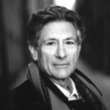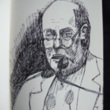A life beyond the boundaries
Description
More Details
Subjects
Anderson, Benedict R. O'G. -- (Benedict Richard O'Gorman), -- 1936-2015 -- Philosophy
College teachers -- New York (State) -- Ithaca -- Biography
Cornell University -- Faculty -- Biography
Historians -- Biography
Intellectuals -- Biography
Nationalism -- Historiography
Nationalism -- Study and teaching (Higher)
Southeast Asia -- Historiography
Southeast Asia -- Study and teaching (Higher)
Also in this Series
Published Reviews
Library Journal Review
This autobiography was one of Anderson's (Imagined Communities) final projects before his death in 2015, but those in search of personal details will be disappointed. Anderson, who was an expert on nationalism, provides only a bare outline of his childhood and school years in Eire (Republic of Ireland) and England before plunging into the development of his discipline-spanning academic career. He stresses the interdisciplinarity of his work, drawing from history, anthropology, political science, sociology, and other fields to make up his oeuvre. Anderson avoids the temptation to fight old battles or settle scores; he speaks generously and kindly of almost everyone he mentions. Throughout, he emphasizes the good luck he has had to be in the right department at the right time with the right teachers. Alert readers will notice that this narrative of good fortune betrays unexamined social privilege, particularly in terms of Anderson's early education. Though Anderson closes with an unfortunate "kids these days"-style complaint, the memoir still makes for fascinating reading. VERDICT This too-short volume will appeal to a broad audience, including anyone interested in the 20th-century politics of Southeast Asia or the development of American academia over the last 40 years.-Hanna -Clutterbuck-Cook, Harvard Univ. Lib., -Cambridge, MA © Copyright 2016. Library Journals LLC, a wholly owned subsidiary of Media Source, Inc. No redistribution permitted.
Library Journal Reviews
This autobiography was one of Anderson's (Imagined Communities) final projects before his death in 2015, but those in search of personal details will be disappointed. Anderson, who was an expert on nationalism, provides only a bare outline of his childhood and school years in Eire (Republic of Ireland) and England before plunging into the development of his discipline-spanning academic career. He stresses the interdisciplinarity of his work, drawing from history, anthropology, political science, sociology, and other fields to make up his oeuvre. Anderson avoids the temptation to fight old battles or settle scores; he speaks generously and kindly of almost everyone he mentions. Throughout, he emphasizes the good luck he has had to be in the right department at the right time with the right teachers. Alert readers will notice that this narrative of good fortune betrays unexamined social privilege, particularly in terms of Anderson's early education. Though Anderson closes with an unfortunate "kids these days"-style complaint, the memoir still makes for fascinating reading. VERDICT This too-short volume will appeal to a broad audience, including anyone interested in the 20th-century politics of Southeast Asia or the development of American academia over the last 40 years.—Hanna Clutterbuck-Cook, Harvard Univ. Lib., Cambridge, MA
[Page 95]. (c) Copyright 2016 Library Journals LLC, a wholly owned subsidiary of Media Source, Inc. No redistribution permitted.



























